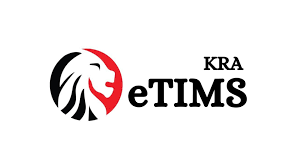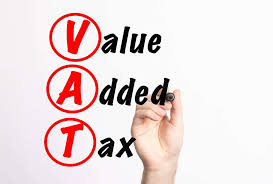On 26th June 2023, President William Ruto signed the Finance Act 2023; this law contains some of the most far-reaching tax reforms in Kenya. Among the most impactful actions of Finance Act 2023 was the amendment of Section 23 of the Income tax Act; which disallowed for income tax purposes all expenses that are not generated from TIMS. Equally, the VAT Act now disallows input on invoices not generated through TIMS.
The action to disallow non-TIMs expenses from income tax has created a limbo for businesses, the hardest hit are SMEs primarily because of how their supply chains are organized; on one hand they are selling to organized entities and on the other hand they are buying from the informal opaque segment. The iniquity presented on the treatment of expenses is an elephant in the room.
Understanding TIMS
Tax Invoice Management System (TIMS) is an information technology system designed to integrate traders’ systems such as Electronic Tax Registers, Point of Sale, and ERP-Billing/Invoicing systems with iTax, the KRA’s online tax platform. The primary objective of TIMS is to enhance the efficiency and effectiveness of tax administration by enabling data triangulation and combating tax evasion, particularly the notorious missing trader fraud.
TIMS ensures that businesses issue valid tax invoices, thereby fostering compliance and reducing revenue leakages. Mandated by the Finance Act 2023, TIMS has become a cornerstone of tax compliance in Kenya, with significant implications for businesses’ financial operations.
Introducing ETIMS: The Digital Solution
Electronic Tax Invoice Management System (ETIMS) emerges as a digital solution to comply with TIMS requirements without the need for specialized hardware. Unlike TIMS, which necessitates hardware integration, ETIMS offers a software-based approach to generating valid tax invoices, eliminating the need for additional expenditure on hardware infrastructure.
For businesses already utilizing TIMS-compliant Electronic Tax Registers (ETRs), transitioning to ETIMS is seamless, as they are inherently compliant with TIMS regulations. However, for those seeking a cost-effective alternative, ETIMS presents an attractive proposition, offering various solutions tailored to different business needs.
ETIMS primary objective is to ensure that businesses are issuing valid tax invoices and therefore tax allowable expenses are valid. ETIMS aims to enable the KRA to increase its efficiency and effectiveness in tax administration through data triangulation and to seal common tax evasion schemes such as the missing trader fraud.
Is ETIMS Mandatory?
Finance Act 2023 amended the Tax procedures Act 2015, Section 23 by requiring that every person carrying out business in Kenya shall issue an electronic tax invoice through a system established by the KRA. From the income tax Act, a person in business can be identified as:
- Companies, partnerships, sole proprietorships, associations, trusts etc.
- Persons with income tax obligations such as Monthly Rental Income (MRI) Tax, Turnover Over Tax (TOT), Annual Income Tax (Corporations, Partnerships and Individuals)
- Persons conducting business in various sectors, including the informal sector.
- Persons in business whether or not registered for VAT.
Exploring ETIMS Solutions
The KRA has designed several ETIMS solutions to cater for the diverse taxpayers needs, these are:
- ETIMS Lite (Web) – Web based solution accessible through eCitizen. This solution is for businesses with minimal transactions.
- E TIMS Lite (USSD) – Accessed through the short code *222#. This solution is for individuals and sole proprietors.
- Online Portal- Tailored for taxpayers in the service sector exclusively, where no goods are supplied.
- ETIMS Client – A downloadable software designed for taxpayers dealing in goods or both goods and services.
- Virtual Sales Control Unit (VSCU) – Catering to taxpayers with extensive transactions or bulk invoicing.
- Online Sales Control Unit (OSCU) – Ideal for taxpayers using an online invoicing system
Navigating Compliance Obligations
Via a public notice on 27th December 2023, the KRA set a deadline of 31st March 2024 for taxpayers to migrate to ETIMS/TIMS. The KRA had a target to recruit 915,000 taxpayers to the ETIMS/TIMS platform. At sunset 31st March 2024, the KRA had managed to onboard only 202,291 taxpayers which is a partly 22% success rate.
Despite the regulatory mandate, compliance has been a challenge, with a significant number of taxpayers yet to migrate to ETIMS by the stipulated deadline. The KRA’s efforts to onboard taxpayers to the platform have yielded mixed results, highlighting the need for concerted efforts to enhance compliance.
Addressing Challenges and Opportunities
While ETIMS promises to streamline tax administration and foster compliance, it also presents several challenges and opportunities for businesses:
- Expense Disallowance: The Finance Act 2023 disallows deductions for expenditures or losses not supported by electronic tax invoices, posing challenges for SMEs and informal sector players.
- VAT-Exempt Transactions: Lack of clarity on managing VAT-exempt supplies underlines the need for regulatory guidance.
- Accrued Expenses: Uncertainty persists regarding the treatment of accrued expenses not generated through ETIMS, necessitating clarity from regulatory authorities.
Charting the Path Forward
In light of these challenges, businesses must adapt to the evolving regulatory landscape and explore innovative strategies to navigate compliance obligations effectively:
1.Understand the law – If you are trading in specific goods or services you may be exempt from the requirements of TIMS. The exemption list is contained in Section 23A(4) of the Tax Procedures Act, 2015
2.Adapt – Take precautionary measures and vet your procurement supply chains; trade only with compliant entities.
3.Apply for reverse invoicing – The KRA is currently rolling out reverse invoicing on a case-by-case basis. The early phase is targeting aggregators and brokers.
4.Be Alert – The KRA is currently developing a buyer-initiated invoice; this process allows SMEs to generate invoices on behalf of the unregistered trader.
5.Get a tax consultant – Tax is getting increasingly complicated; a consultant provides invaluable support, enabling you to stay ahead.
Conclusion
As businesses strive to adapt to the evolving tax landscape, the complexities of ETIMS implementation become increasingly apparent. From understanding regulatory requirements to ensuring seamless compliance, the challenges can be daunting. In such a scenario, the expertise of a tax consultant becomes indispensable. A consultant provides invaluable support, enabling businesses to stay ahead in Kenya’s dynamic business environment. At FHC we are always eager to help, contact us today.












